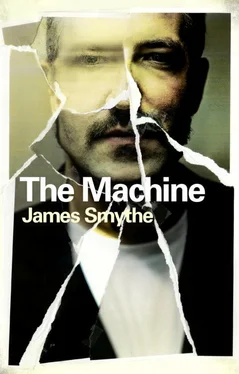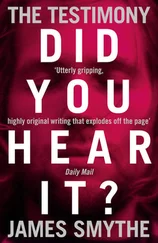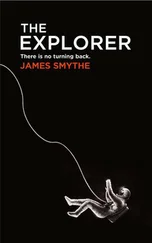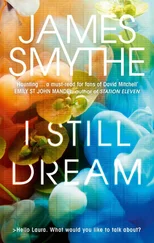He must have ID, she says. She checks his pockets and pulls from one of them a thin white sleeve with a bus ticket and soggy bank notes and there, an ID card. It says his name and his address. And his date of birth. Beth puts her hand to her mouth, and watches it shake as she lifts it, and feels it tremble against her lips. She reads the rest as fast as she can. It says that he’s diabetic. It says that the contact number, in case of emergency, is his father’s. Should we call him? Let him know? Beth asks, but she knows that they won’t. Nobody’s seen this: them with the body. This part of the beach is so enclosed, so rarely visited, that nobody will have noticed.
I pushed him from the cliff, Vic says, suddenly. I hit him a couple of times and then I picked him up and held him above my head and threw him over.
Where they jump?
Yes. That spot. He said he was going to find you, and the things that he said he would do, I got so angry. I wanted to teach him a lesson. His face collapses. I think I didn’t throw him far enough.
What?
That’s how it happened, he hit something else. Rocks, so I dived in after him, and I swear Beth, I saw him as I was falling and I thought I could save him. So I brought him here, because I really thought that he might be all right.
Jesus Vic, she says. He looks like he wants to be held, but she can’t touch him yet, because she doesn’t know what this means. Which part of him did this: the part that was there before, the soldier and husband; or the part that remembers things that she doesn’t.
Can’t we leave him? Vic asks. His friends will find him, because I don’t know what will happen to me.
Oh Jesus.
I’m sorry, I’m sorry. Vic holds his arms out, a toddler wanting reassurance. Pick me up, it says.
We have to go, Beth tells him. She thinks about the blood on the rocks where he would have landed, and hopes that the water washes it off – it should – and that his friends will find the body and that will be that. They’ll assume he fell into the water from the cliff edge; or that he jumped and accidentally hit a rock; or that he did it deliberately, maybe. Suicide rates are high. He was troubled, and they surely all knew that. It’s not hard to recognize in him, and everybody will testify to it. If they realize it was no accident they’ll just assume it was one of the many other enemies that the boy’s no doubt accrued. They walk back up onto the street and she checks herself, that there’s no blood on her, and sees that she’s clean (apart from her head), and so she takes Vic’s arm – her hand wrapped around his forearm, not holding his hand – and she pulls him behind her. It’s still dark, and they stay quiet, neither saying a word as they walk through the estate – the quiet, damp squeak of Vic’s trainers, and the noise from inside him, his lungs or a moaning, Beth can’t tell, those being the only noises that accompany them – and then into the flat.
You need a shower, Beth tells Vic. He strips and stands in the bathtub and she turns the tap on, and then leaves him to do the rest. His body looks weaker than it did when he left the house: thinner, somehow. Like seeing the boy on the beach took a part of him. Maybe just in the way that he holds himself, in the slump of his shoulders. Scalded, knowing that what he did was wrong.
Beth waits for him in the Machine’s room. She looks at it, and she presses the screen. She thinks that she can wipe this: from Vic’s mind, from her mind, if need be. She’s read stories about criminals who have had things wiped from their memories to give them perfect deniability when taking lie-detector tests. But she won’t do that: because she doesn’t know what erasing something now might do to him. Might leave him vacant again, and she doesn’t think she’s got the strength to go through all of this again.
You fucking monster, she says to it. What did you put inside his head?
The Machine seems to start the fans in reply, and the screen gets somehow brighter, and then the thing hums and shakes even though it’s not switched on. And even as she blames the Machine, she thinks about her arm, and how troubled Vic has been. Is this better or worse?
In the bathroom, Vic starts singing, a song that Beth’s never heard before, that seems to have no tune and no melody, only words, and they make no sense to her.
Vic is still asleep when Beth wakes him. He’s curled up on his side of the bed, his body presents an implausibly small form; his breathing is constant and sharp. He doesn’t move as Beth does, and she makes it out of the bedroom and into the living room without disturbing him.
She turns on her computer and goes to her forums, and she searches for other people who have had issues with the Machine; or with the people that the Machine has built up. One woman reports that her husband has trouble sleeping, not just insomnia but something worse and more deep-seated, and he has to take pills to knock him out, but that’s a small price to pay to have him back; a man’s boyfriend has been slightly more aggressive, but nothing that can’t be handled, just shouting at other drivers; another man’s wife has completely lost her sex drive, total lack of interest, and she cries when he tries to instigate it with her. Beth starts a topic, staying casual, not giving anything away. She asks what other people think the memories which the Machine puts inside their loved ones really are. She refreshes the page, but there are no immediate replies.
She washes their clothes in the bath, making sure that the water runs scalding hot and then adds bleach. The blood spirals, whirlpools around the plughole, but it’s too thin to leave a ring around the bath itself. Too thin for that.
She checks her phone, and there are messages from Laura.
PLEASE TELL ME YOU’RE OK
I HOPE YOU KNOW WHAT YOU’RE DOING
IT DOESN’T HAVE TO BE THIS WAY. THE LORD FORGIVES.
They’re all written in capital letters, shouted at her with the same insistence that Laura had when knocking on the door. Beth wonders why she didn’t spot that insistence in everything: the way she drank, the way she fingered her cross. She wonders why she was friends with her in the first place: she doesn’t want to tell herself how lonely she actually was.
Go away, Beth says to the text messages. She stands by the window, thinking that they should leave: this is a definite full-stop to their time on the island, even if Vic protests. He’ll have no choice now. She imagines him more placid after this. Easily persuaded, in his guilt and shame.
And then out of the window she sees the crowd in the courtyard below: the policemen, knocking on doors, talking to residents. Across the way, two more stand on either side of the door to what must have been the boy’s flat. Flowers along the wall. This has all happened so quickly. Beth touches the side of her head: the cut is now scabbing, it still needs a clean and some proper attention. Not stitches, at least, it’s healed too fast for that. Her head throbs. She can hear the Machine. Vic’s breathing.
She opens the front door. From here she can see down to the street, and there’s a cordon and a group of people milling around outside the shops.
I’ll be back, she says to the flat, and she takes the keys and walks out. She heads down to the centre of the estate and the police stop and look at her. What happened? she asks one of the officers. She has no idea if she’s a good liar or not.
Are you a resident here?
Yes. What happened?
He ignores her question. What number, please? She tells him. He looks up her name on a sheet. We’ll be around in the next half an hour or so. We’ll let you know everything then.
Beth sets off down the path, and she almost runs to the crowd who are gathered around the steps down to the water’s edge. There’s an ambulance but the doors are shut, and the crowd aren’t saying anything. She sees the waiter from the restaurant, and he smiles at her, like they’re old friends.
Читать дальше
Конец ознакомительного отрывка
Купить книгу










